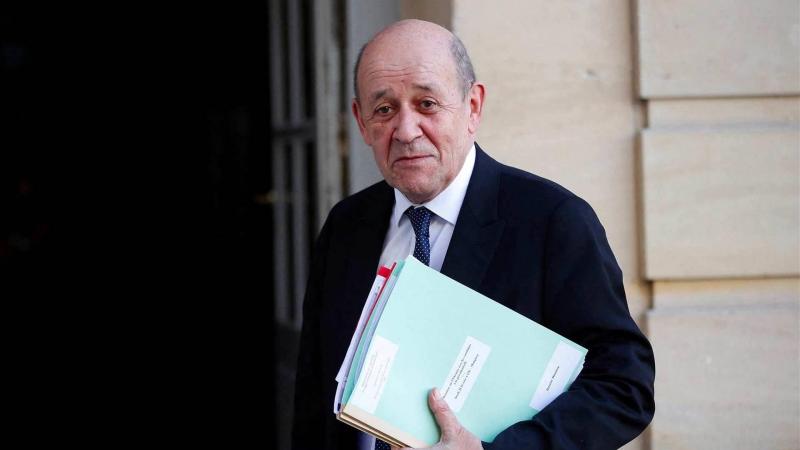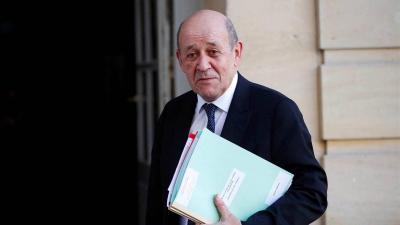External and international efforts to de-escalate tensions on the southern front in Lebanon have taken on significant implications, according to "An-Nahar." There appears to be a near-unanimous international consensus on the necessity of completely separating Lebanon from Gaza and consequently restoring a comprehensive and stable ceasefire in the south. This would involve reinstating the UN-Lebanese equation that governs the situation in the south under the authority of UN Security Council Resolution 1701. Despite recent events that have breached this resolution, there will be no new path to restoring normalcy in the south except through this resolution.
Additionally, a new development has emerged with signs of reviving the long-stalled presidential file. In this context, it is confirmed that French presidential envoy Jean-Yves Le Drian will arrive in Beirut next Wednesday to resume his mission aimed at facilitating the election of a president after previous obstacles hindered this task. In a statement released yesterday, the U.S. Embassy in Beirut emphasized that "12 hours of calm along the blue line have given us all hope and renewed energy to build a better tomorrow for Lebanon," echoing the call of their colleagues in UNIFIL in a strong statement.
The head of the UNIFIL mission and its Force Commander, General Arnaldo Latharo, expressed his concern regarding the ongoing intense gunfire along the blue line, which has led to numerous casualties and significant damage, threatening people's livelihoods. He urged those exchanging fire along the blue line to halt this cycle of violence, stating, "Any further escalation in southern Lebanon could have devastating consequences." He added that parties should reaffirm their commitment to UN Security Council Resolution 1701 and cease hostilities while seeking long-term solutions to address the underlying causes of the conflict.
Meanwhile, Russia's push toward preventing escalation in Lebanon has also been notable. The Russian Foreign Ministry announced that a phone conversation took place between Russia's Special Representative for the Middle East and Africa, Deputy Foreign Minister Mikhail Bogdanov, and Prime Minister Najib Mikati. The ministry's statement indicated that the conversation addressed current issues related to the gradual development of traditional friendly Russo-Lebanese relations, including maintaining regular political dialogue, while also focusing on the situation unfolding in the Middle East, particularly events in Gaza and southern Lebanon. The Russian side reiterated its firm position supporting the unity, territorial integrity, and sovereignty of the Lebanese republic, emphasizing that military escalation in the Israeli-Palestinian conflict should not extend into Lebanese territory.
In the meantime, Foreign Minister Abdullah Bou Habib met with the European Union's High Representative for Foreign Affairs and Security Policy, Josep Borrell, in Brussels, where he invited him to visit Lebanon "at the earliest opportunity" and expressed gratitude for his speech before the European Parliament regarding Gaza. He added, "If Israel wants to halt the escalation, it must stop the war, allow Palestinians to return to northern Gaza, and cease its threats to Lebanon." Bou Habib also met with European Parliament President Roberta Metsola, stressing that "we are today facing a real opportunity to stop this devastating war."




